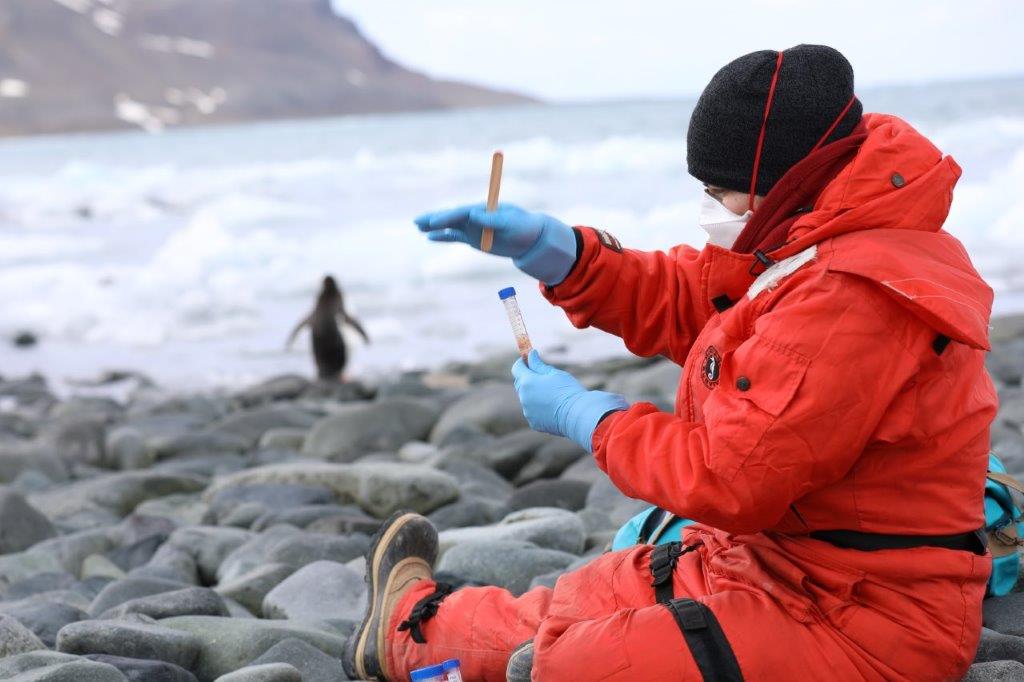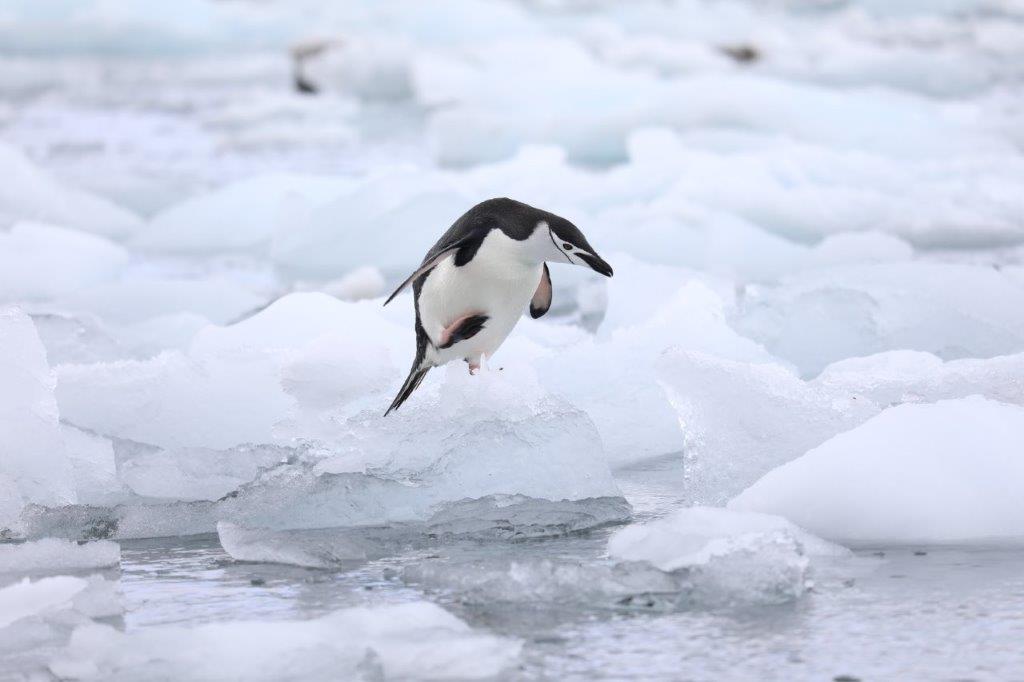Fioantar to expand operations and strengthen health surveillance in Antarctica
14/12/2023
Cristina Azevedo (Fiocruz News Agency)
Fiocruz's Antarctica Program is entering a new phase. Fioantar's proposal approved on Thursday (12/7) in a request for proposals for the next four years includes an expansion of collection points, an increase in the number of participating Foundation laboratories, a different working methodology, as well as national and international partnerships. As a result, coordinator Luciana Trilles, researcher at the Mycology Laboratory at the Evandro Chagas National Institute of Infectious Diseases (INI/Fiocruz), expects an even more robust health surveillance on the frozen continent.
A Fioantar researcher collects material in Antarctica (photos: Peter Ilicciev)
The approval by the National Council for Scientific and Technological Development (CNPq), the Ministry of Science, Technology and Information (MCTI) and the National Fund for Scientific and Technological Development (FNDCT) occurs when the last expeditions of the previous RFP are underway. Since 2019, Fioantar's team has published three scientific articles, set up a biosafety laboratory at the Comandante Ferraz Antarctic Station (EACF), gone through a pandemic and collected samples that will be studied for many years to come, strengthening the Brazilian Antarctic Program (Proantar).
The proposal Surveillance of Pathogens, their Impact on Global Health and Research into the Biotechnological Potential of Antarctic Microbiota for Health calls for more collection points and foresees a new methodology: capturing birds for clinical analysis, rather than just collecting excreta from the ground. "We are now going to investigate what these birds are actually carrying. Because when we take the excreta from the soil, it may be that those microorganisms were not originally in the excreta. They could be on the ground. When we take a swab or other clinical material, the results are more precise. This makes health surveillance more robust," explains Luciana, excitedly.
While previously eight of the Foundation's laboratories took part in Fioantar to analyze the samples, there are now 11, which expands the expertise and the possibility of finding a greater number of pathogenic species of bacteria, fungi and viruses, for example. Also participating are the Biodiversity and Health Biobank, the Vice-Presidencies for Research and Biological Collections (VPPCB/Fiocruz) and Production and Innovation in Health, the Fiocruz Global Health Center (CRIS/Fiocruz) and the Social Communication Coordination (CCS/Fiocruz) – an integral part of the scientific dissemination process.
Another novelty is the partnerships with Brazilian and foreign institutions. Among the national ones are the Polar and Climate Center, at the Federal University of Rio Grande do Sul (UFRS); the Veterinary Virology Laboratory of Viçosa (Lavev), at the Federal University of Viçosa; the University of Brasilia (UnB); the Higher Defense School (ESD); the Institute of Biology at the State University of Rio de Janeiro (UERJ); and the Fluminense Federal University (UFF). They are joined by international institutions such as the Institute for Systems and Computer Engineering, Technology and Science, in Portugal; the Westerdijk Fungal Biodiversity Institute, in the Netherlands; and the Université Catholique de Louvain, in Belgium. "This is Proantar's wish, that the projects can interact and work together. Combining different expertise and projects," Luciana notes.
The four-year experience made it easier to build the new project, such as seeing which new collection points should be added, and contacting groups with whom the exchange of information and experiences could be enriching for both sides. The new RFP covers the period from December 7, 2023 to December 31, 2027.
"A surveillance project needs to have continuity of action. There is no point in looking at a single year or a single location. It is good to have an idea of a wider geographical region and for consecutive years. So that is what we will be doing now and continue doing with the proposals for bioprospecting in health, which is also an important objective," concludes Luciana.


